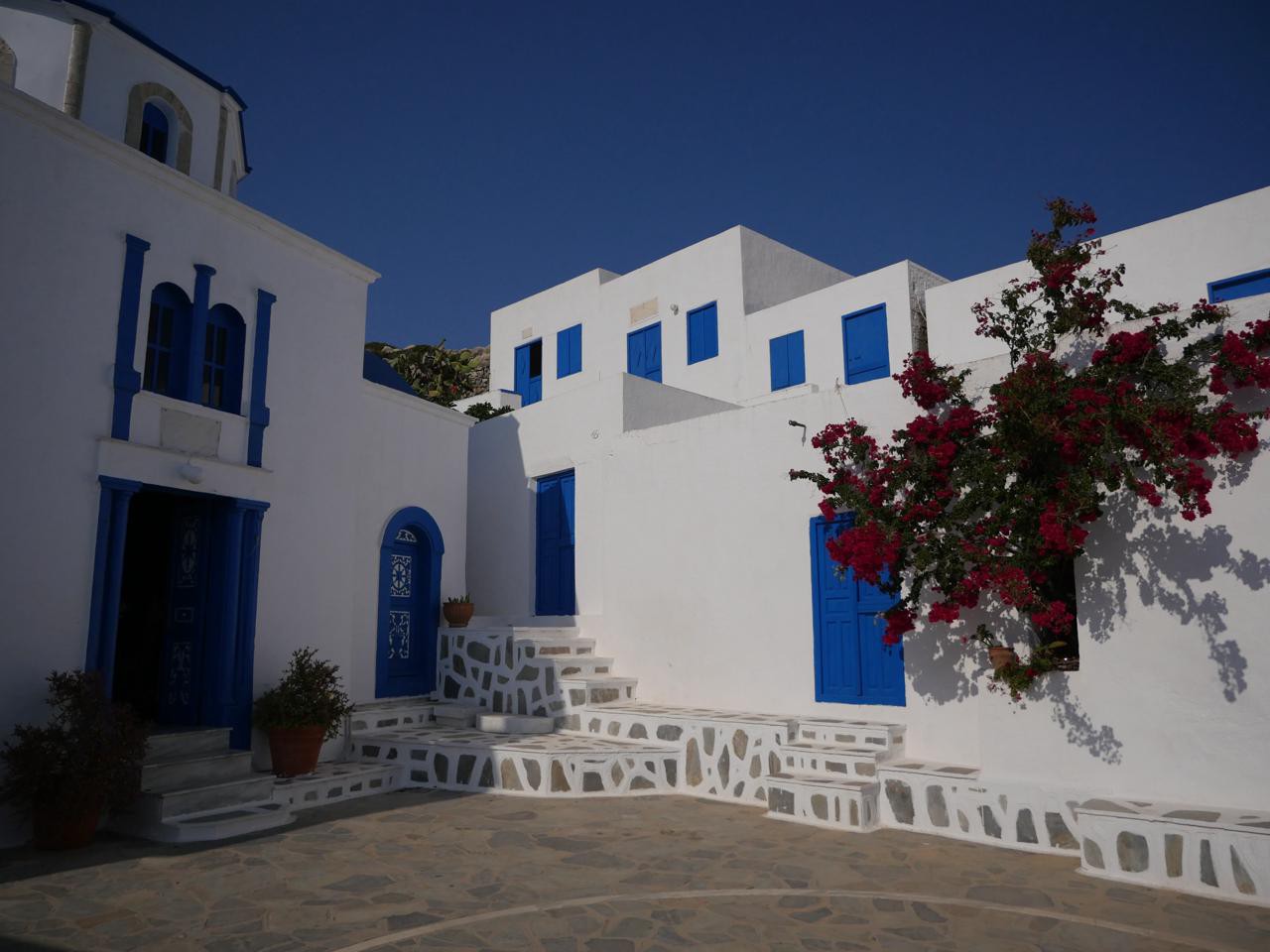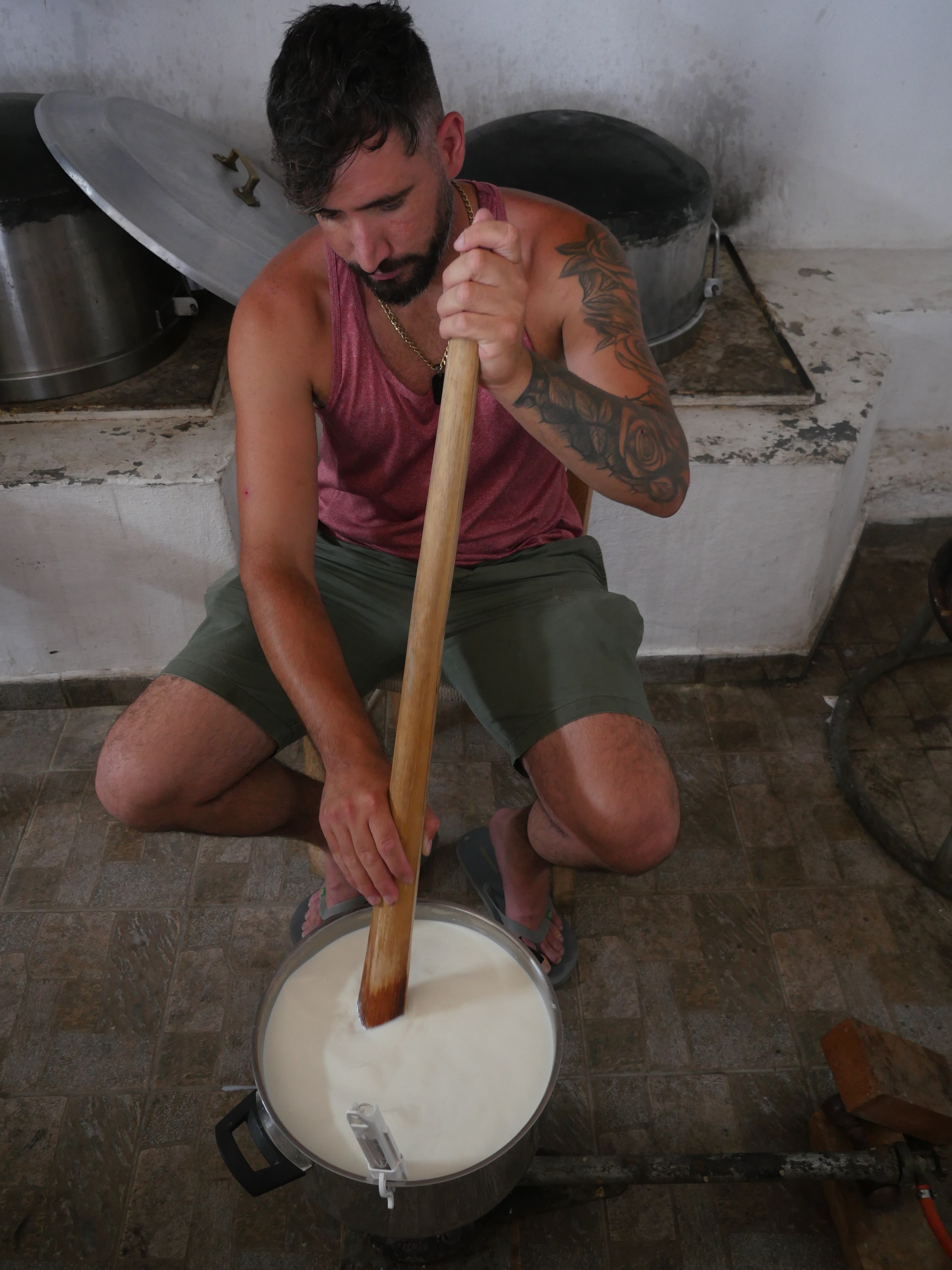Elias Diakakis and his sitaka

Elias Diakakis is a farmer, but also a hairdresser and a musician. Overlooking the island of Kassos, he spent his entire childhood in a traditional Greek house over the hills. Another tradition he masters is the recipe for sitaka, a typical goat cheese of the island that has been passed through generations.
In the steep hills of Kassos, where stone paths wind through thyme-covered slopes and the sound of goats echoes off the cliffs, Elias begins his day well before dawn. With hands worn by decades of labor and a soft but steady voice, he tells us about his work : “This is not a fast work. It takes time”. As a farmer, he feeds his animals a mix of grains, filters the milk, and waits. “Patience is essential”, “I've been keeping animals with my father since I was 6”, he says, standing in front of his old stone house. “My father had animals, and his father before him. It’s a long tradition, maybe more than a hundred years.” Elias is carrying on a family tradition that goes back generations.
Today, he has around 70 sheep and 10 goats, which he raises for their milk and meat. But what truly connects him to his island is making sitaka, a creamy cheese unique to Kassos, passed down from father to son. “It’s been in my family since my great-great-grandfather. Maybe more than a hundred years”. Elias shares a local legend: “The elders say the first sitaka cheese in Kassos was made by accident, maybe more than 200 or even 300 years ago !” Someone left milk to ferment for a while. To avoid wasting it, they started making it this way. That’s how sitaka was born.

The taste of patience
At first glance, the process may seem simple: feed the animals, milk them, heat the milk. But every gesture is a ritual. “You have to love what you do. Otherwise, you can’t do it”. Elias prepares his own feed mix: 90% chicken feed and 10% goat feed. Then the milk is filtered and left to rest for 12 hours before being gently heated up to 90°C, stirring it with a wooden stick always in the same motion. The aroma rises, subtle at first, then captivating. Sitaka slowly takes shape. Creamy, smooth, slightly tangy, it is the soul of Kassian cuisine. “We eat it with makarounes, definitely not spaghetti!” jokes Elias. “The shape of the pasta matters; it has to hold the sitaka properly”.
"Young people want clean hands and fast money. This job ? It's about love and time"
But behind the poetry, the reality is harsh. Climate change is hitting the island. “We can’t grow hay or grains anymore. It’s been raining much less for the past three years. We must import feed from the mainland. It’s expensive.” To make 1 kg of sitaka, 4 liters of milk are needed, so 4 productive animals. And to feed them? €6 per day. But Elias sells his cheese for €12 per kilo. “If you do the real math, you’re working almost for free”. And that’s not all. No vacations, no breaks. 365 days a year. “You have to be here, no matter the weather or your health”. Despite his love for the job, Elias is thinking about the future. “If it’s no longer profitable, I’ll have to stop”. He’s considering restoring two traditional houses to rent to tourists. “That could help me keep going. And they’d be looking for a real experience, not just a hotel”.

An uncertain future, but full of hope
When asked if someone will take over, Elias sighs. “No. Young people want clean hands and fast money. This job? It’s about love and time”. And even if the future is blurry, he holds on to hope that someone will fall in love with this island as he did as a child : “My childhood memories of the island are colorful. We spent our summers in the mountains, swimming, fishing, collecting salt. After school, we played in the fields, rode little donkeys, helped harvest olives...” Simple, free memories, rooted in nature. And today? Elias doesn’t want to leave. “I want to stay here forever”. He dreams of a future in Kassos, peaceful and close to the land, without the constant stress of “how will I get by”. Elias doesn’t speak with grand words. He speaks like his mountain: slowly, steadily, with memory. And maybe Kassos itself tastes like sitaka: a little wild, a little salty, but unforgettable.
Text : Dina Kadouri, Gregory Economides & Malvin Huin
Photos : Malvin Huin
